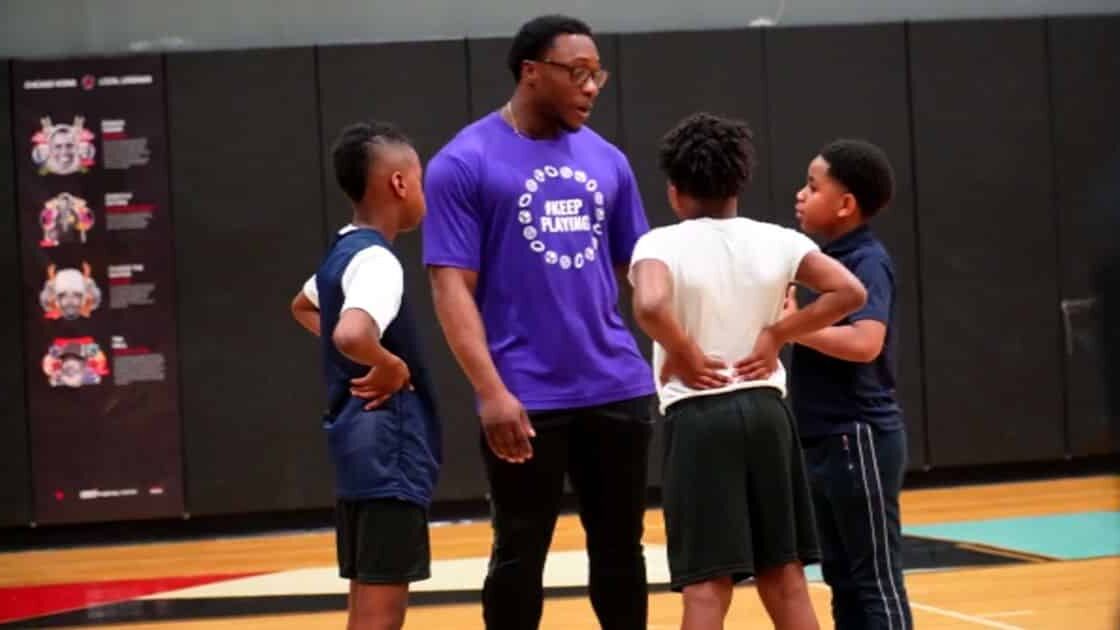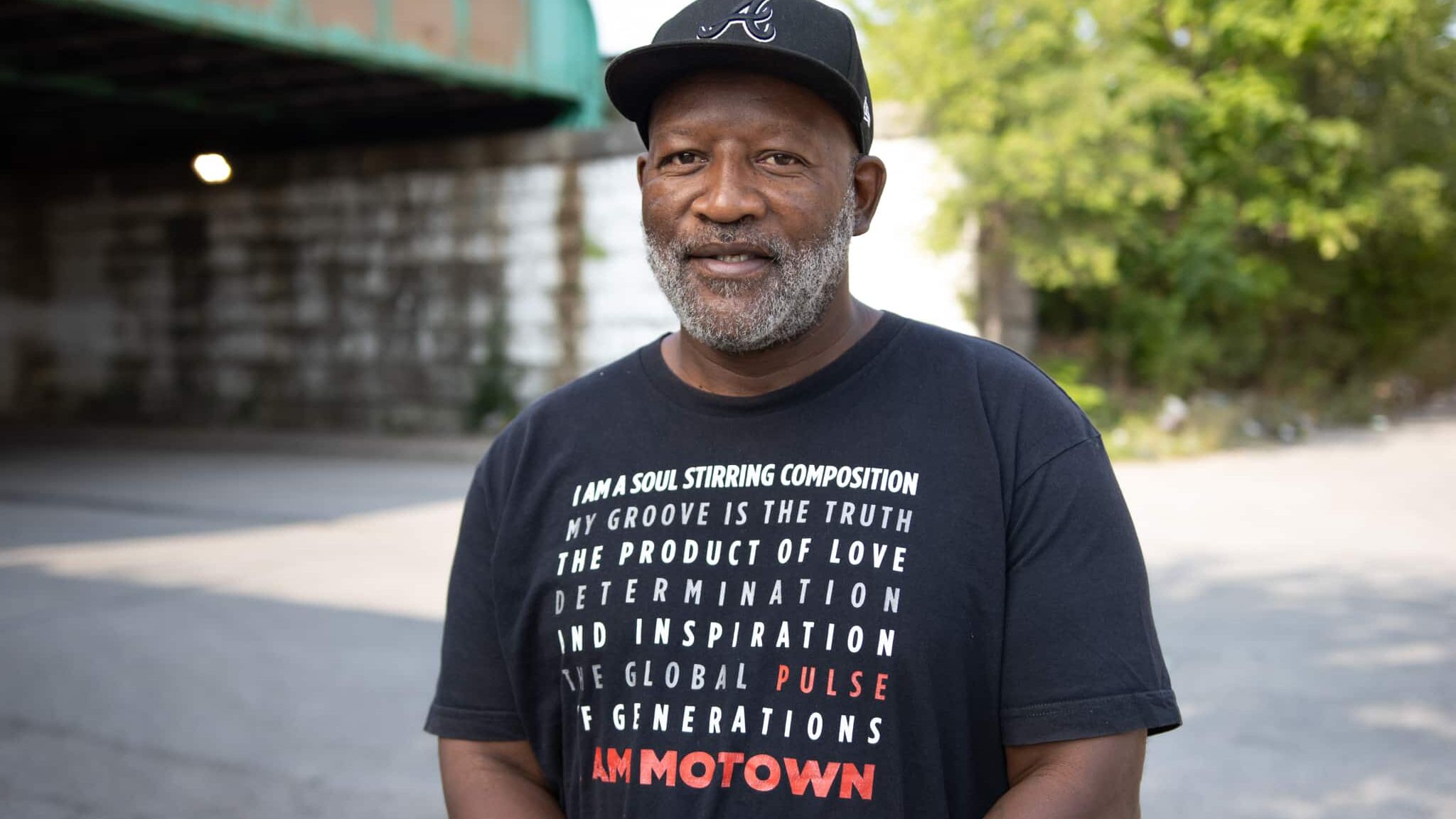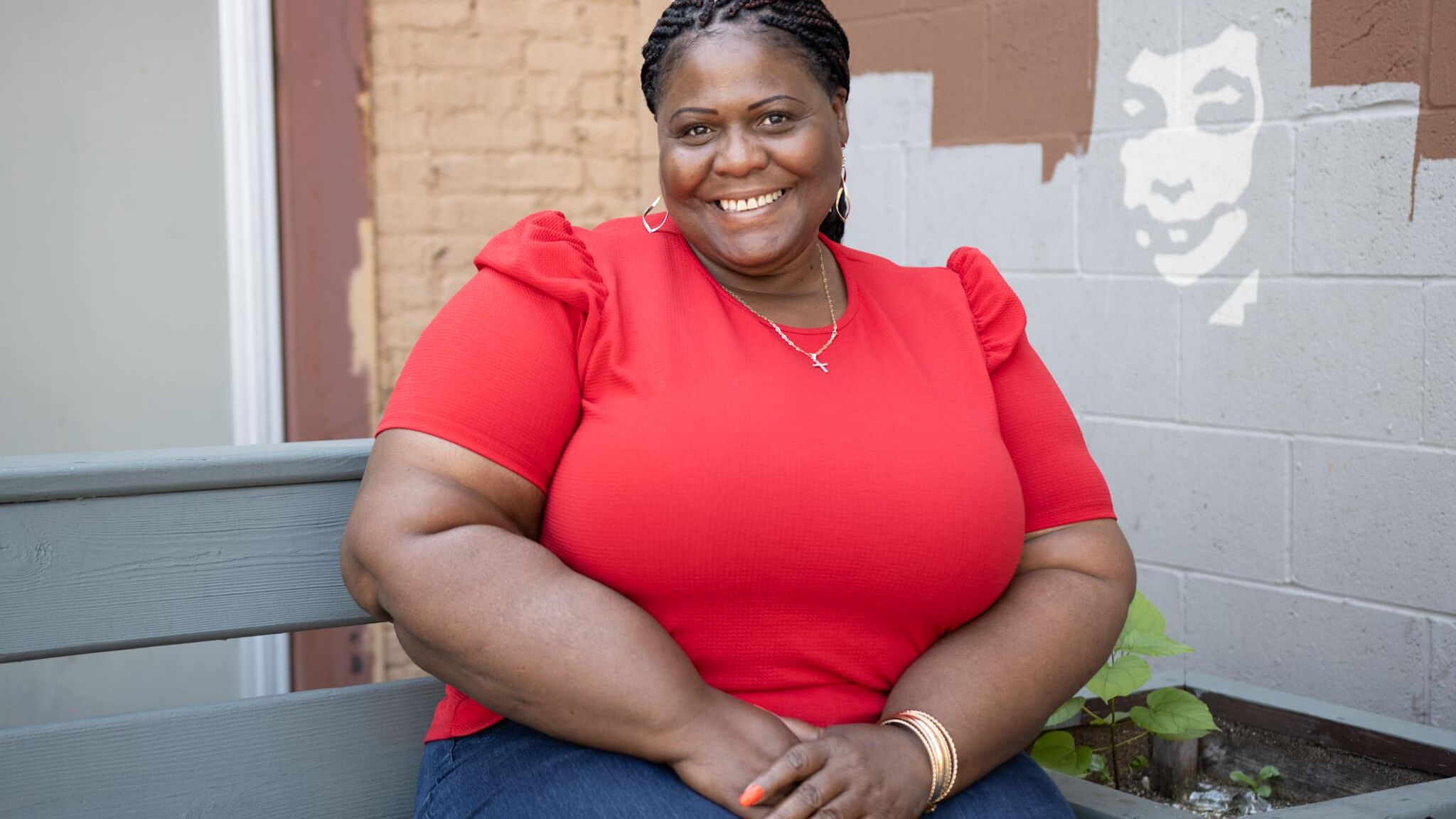It was after choir practice on a Friday evening that Yolanda Fields saw an RV in the church parking lot that read “Bridge of Hope.”
“My husband and I were intrigued,” she said. “For a couple Fridays, we had seen this RV, and we were like, we’re going over there to see what they’re doing in our neighborhood.”
They shared with Yolanda and her husband about their ministry to women who were being trafficked.
“I had no idea that Bridge of Hope was actually Breakthrough,” Yolanda said.
A few months earlier, shortly after the events of September 11, 2001, Yolanda had made the decision to leave the telecommunications company she had been working for for more than ten years. “I realized that I didn’t want to spend another day growing somebody’s bottom line,” she said. “ I really started to think about what are the ways that God has gifted me, and how have I not lived fully into that gift.”
She volunteered with Bridge of Hope for almost two years before she would become the director of the program.
It was not only her first opportunity to lead in a nonprofit setting, but it was also an opportunity to really be on the ground. “I’ll never forget the stories of heartbreak and triumph,” she said, but she also learned how to minister to women experiencing such difficult situations.
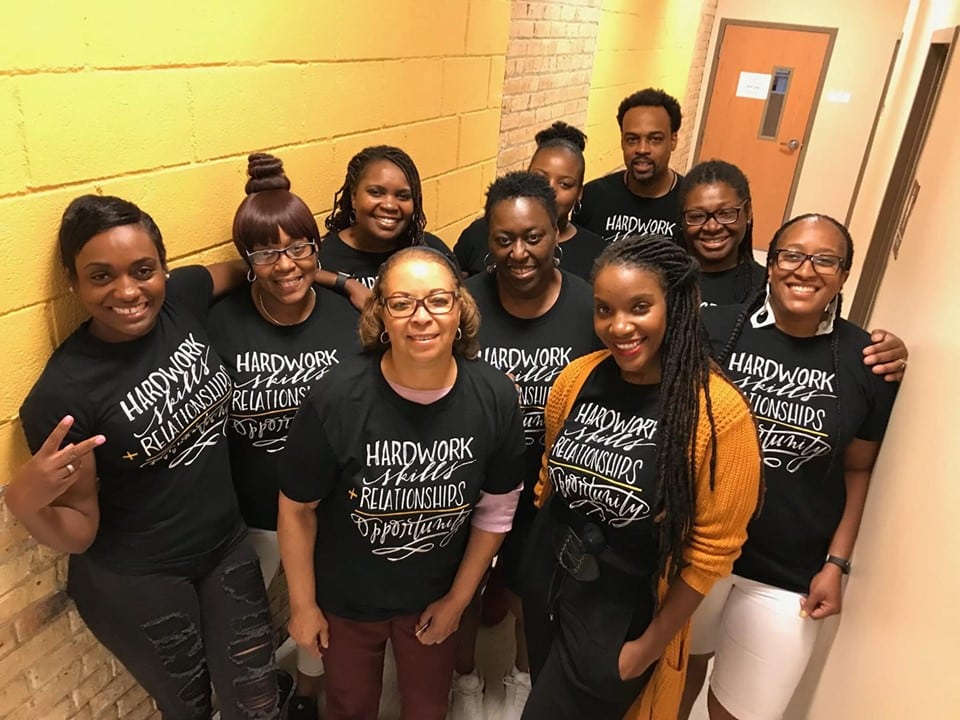
Breakthrough eventually made the tough decision to not continue the program, and Yolanda went on to become the Director of the Women’s Center.
Caring for Women in Crisis
Yolanda learned early on that she was created for more than herself. The daughter of a single mother in St. Louis, she remembers the way the women in her life valued people and relationships.
“My mom always kept a pitcher–it wasn’t even really a pitcher, it was like a jumbo-sized container–of grape and red Kool-Aid,” she said. “The red can be strawberry or cherry, as long as it was red, none of my friends cared. That was the hospitable act that we grew up with. My mom, even when we had very little, always made sure that we had enough to share.”
Her grandmother was an advocate. She believed it was the right of every American to own a home, and, when Yolanda was young, she would take a bus with her grandmother to cities to advocate for housing for low-income individuals and families.
“They rolled up their sleeves and they walked [their faith] out,” Yolanda said. “Whether it was my mom caring for my friends and other people who showed up at our door or the number of endless relatives who spent some time living in our small apartment, or if it was my grandmother trying to advocate at a national level on a Greyhound bus, going from city to city with a picket sign.”
It was also when she was young that she began to care for women in crisis, a calling God cemented through the women she met through the Bridge of Hope RV.
“I watched my Mom struggle,” she said. “I watched her just do the best she could with what she had, and I’ve always wanted to alleviate some of that burden for other women.”
A Love for West Side of Chicago
After moving from St. Louis to Chicago in her early twenties, it was that familiar hospitality that fostered Yolanda’s love for the West Side.
The family she stayed with attended New Landmark MB Church in East Garfield Park, the church that she now serves as the associate minister of and her husband pastors.
“At the church, people just threw their arms open, and they invited you into their homes for collard greens and cornbread,” she said. “Just this idea that people could be so hospitable really created for me just a love for the West Side that kept growing and growing.”
It felt like there wasn’t a stranger on the block, she says. She remembers going to the woman’s house on the corner and eating Doritos with cheese and ground beef out of the bag. She remembers the snow cone truck and the ice cream truck that would come down the street. She recalls the conversations and the stories she was told about the West Side’s rich history and all the ways that community existed.
“Chicago almost became a respite for me,” she said. “It became the place that I received sort of this unconditional love that I had only experienced with my family in St. Louis, and I felt cared for in this community.”
Today, the West Side is still home for Yolanda and her family.
Days at the Women’s Center
When she left corporate America, Yolanda says she had the idea that she wanted to do something purposeful and to help others. After transitioning from Bridge of Hope to the Women’s Center, she says she not only had more responsibilities, but also more opportunities to be broken.
She remembers a woman staying at the Women’s Center who rode her bike from East Garfield Park to the lakefront every morning.
One rainy morning, Yolanda walked into the Center feeling irritated by the weather and the difficult drive to work. She saw the woman, her clothes dripping wet. The woman had ridden her bike in the rain on the lakefront, and she shared her joy for having had the opportunity to see the sun.
“It was at that point that I realized that what I thought I had to give paled in comparison to the things that God would give me the privilege of receiving,” Yolanda said. “It was from that point on that I understood mutual reciprocity.”
Yolanda says, simply by showing up, she has received more than she ever imagined.
“God affirmed for me that all of my experiences up to that time were leading me to this place where He was going to use this desire I had to show up for women in the way that I thought women deserve to have people cheer for them and to advocate for them,” she said.
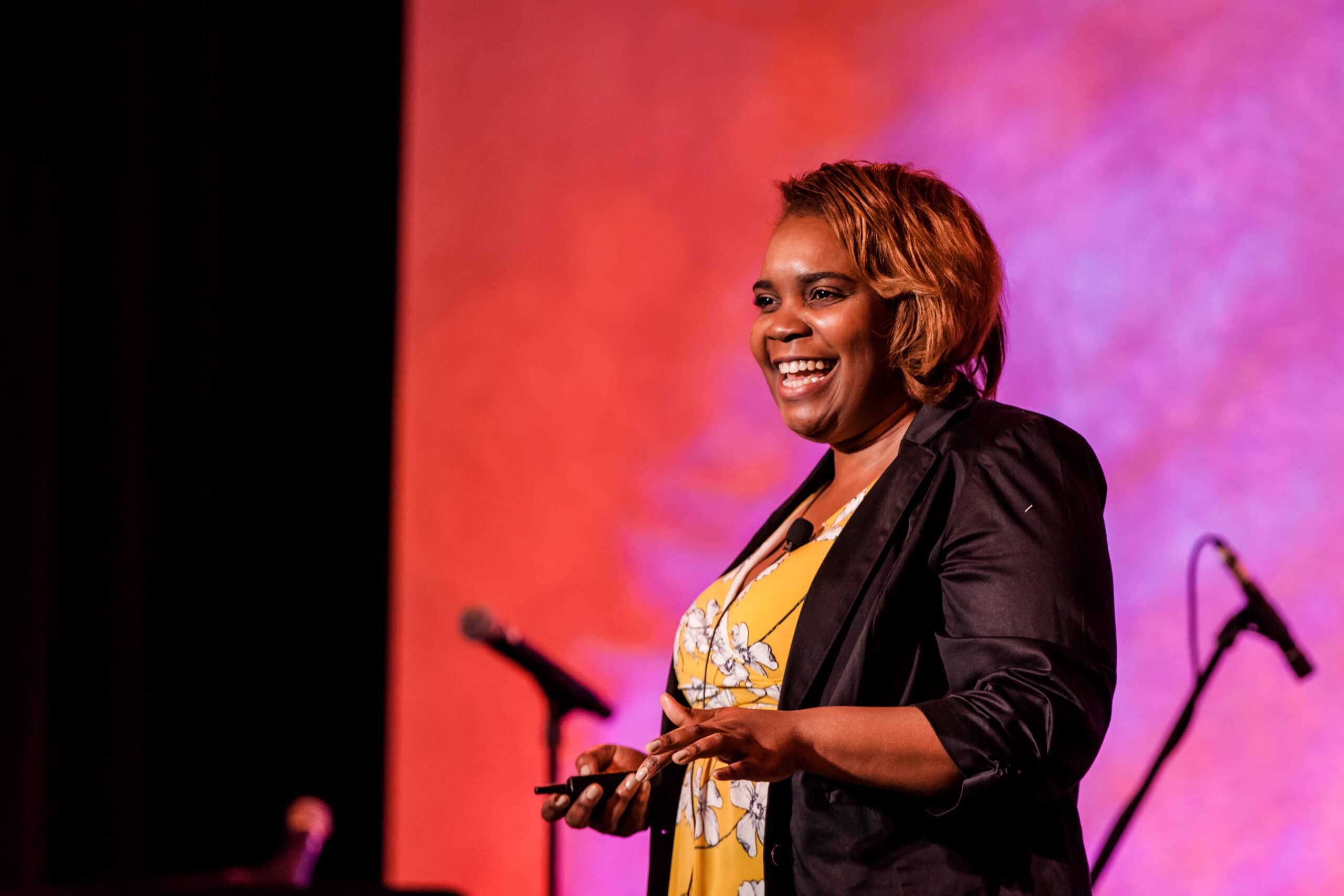
Yolanda served as the Director of the Women’s Center until 2010, when she began leading all of Breakthrough’s adult programs. This month, she was announced as the incoming Executive Director of the organization.
The Next Chapter of Breakthrough
Yolanda is intimately acquainted with the needs of East Garfield Park and is compassionate and strategic about how Breakthrough positions itself and partners with our neighbors.
She references the book of James and God’s desire that none of us would show favoritism. However, in communities like East Garfield Park, we are seeing the direct result of partiality: individuals who have been pushed to the margins of our society, who were not cared for well or given the opportunities that others had.
“I think it’s the responsibility that Breakthrough has now to call out those places where favoritism has led the way in our systems,” she said. “Whether it’s housing or economic development or education, our responsibility now is to say, here’s where favoritism has reared its ugly head and to actively be involved in dismantling it.”
Breakthrough is partnering with our neighbors so that they can contribute their skills and strengths and nobody gets left out. Looking to the future, Yolanda hopes East Garfield Park is a community where families – men, women, boys, and girls – thrive and succeed.
“That thriving,” she said, “is indicated by the ability for legacy residents to remain in their homes, home ownership to become possible for those who desire it, for economic opportunities that point to a livable wage, where children are playing in the streets, where block clubs are active, and the summertime is filled with those old nostalgic things that were icons of communities: snow cones and tacos and Doritos with cheese and ground beef.”
The Bible illustrates so perfectly what can be accomplished with faith, Yolanda says. “We’re given that hall of fame of all of the men and women before us who have activated their faith in practical ways that have impacted generations after them.”
She believes we’re called to do that now, to create a real legacy of love and faith through deep partnership, deep relationship-building, and deep collaboration.
“Ultimately, when we are all gone,” she said, “I hope that the mark of God’s love would be present in Garfield Park because we showed up.”
Author
-

Breakthrough partners with people to build connections, develop skills and open doors of opportunity.
Related Posts
March 22, 2024
Breakthrough Provides Girls Sports and Other Services for Families
Breakthrough provides a safe space for youth to grow, face their fears, and learn to help others. CBS Chicago highlighted our girls sports program and the other ways we partner with families in Garfield Park.
Sports & Fitness AcademyEducation & Youth DevelopmentMediaPress
February 26, 2024
History in the Making: Royce Gives Back to the Community
Royce and the other victim advocates come alongside victims and their families in the most difficult moments.
February 6, 2024
History in the Making: Barbara Shows God’s Love
Case Manager Barbara has walked alongside women experiencing homelessness for 16 years.


